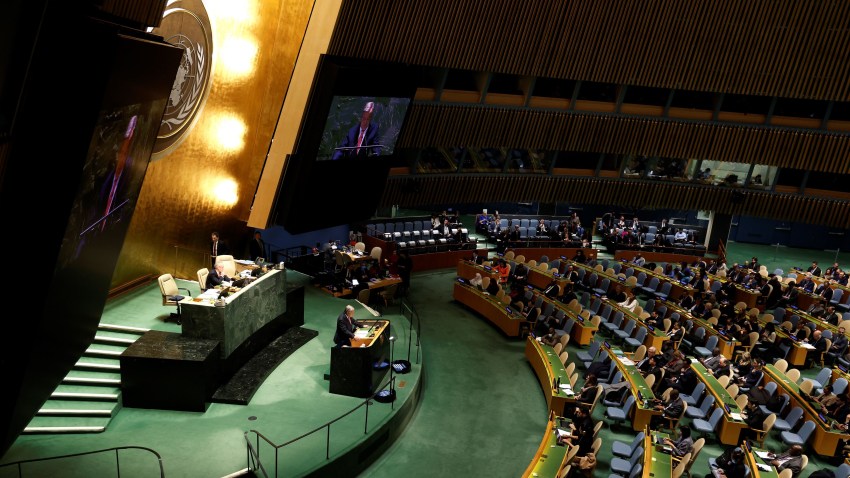This month, the members of the United Nations General Assembly took a small step toward strengthening the forum’s role in international peace and security issues. The assembly, where all states have a single vote and none wields a veto, typically plays second fiddle to the U.N. Security Council when it comes to dealing with major crises. But the Security Council has become embroiled in debates between Russia and the West over Moscow’s war on Ukraine, and many U.N. members feel that the assembly should compensate for the council’s flaws.
The General Assembly has gained prominence due to the war in Ukraine, passing resolutions condemning Moscow for its aggression by large majorities. But most of these have stayed at the level of principle, making few concrete suggestions about how to structure a peace process. Following the military coup in Myanmar in 2021, the assembly did endorse a resolution specifically calling for an arms embargo on the country, but it had little impact. Unlike the Security Council, the General Assembly cannot pass binding resolutions on measures like sanctions. Diplomats serving in the assembly say that even if they want the body to play a greater role, figuring out how to achieve this is no easy task.
Against this backdrop, a General Assembly working group agreed to the text of a wide-ranging resolution on the body’s functions in early July that included a short request for guidance—in the form of “a digital handbook … on past practices, data and recommendations”—on how the body can fulfill its functions under Chapter IV of the U.N. Charter, which authorizes it to make recommendations on security questions. The assembly still needs to approve this resolution, but that should be a formality.

